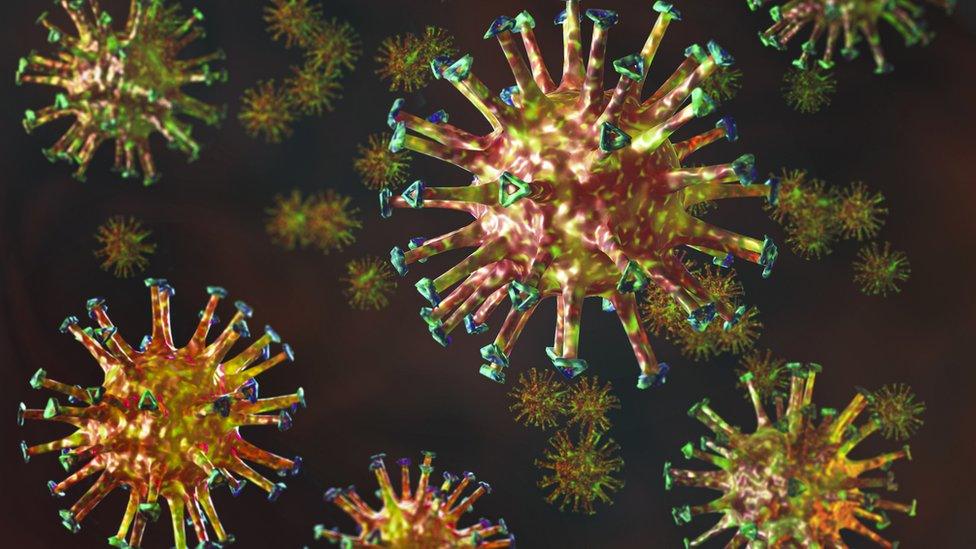UK has two cases of variant linked to South Africa
- Published
- comments

The UK has detected two cases of another new variant of coronavirus, the health secretary Matt Hancock says.
The cases in London and north west England are contacts of people who travelled to South Africa, where the variant was discovered.
Travel restrictions with South Africa have been imposed.
Anyone who has travelled there in the past fortnight, and anyone they have been in contact with, are being told to quarantine immediately.
The variant has been causing mounting concern in South Africa, where health minister Zweli Mkhize warned that "young, previously healthy people are now becoming very sick".
He said the country "cannot go through what we went through in the early days of the Aids pandemic".
Allow X content?
This article contains content provided by X. We ask for your permission before anything is loaded, as they may be using cookies and other technologies. You may want to read X’s cookie policy, external and privacy policy, external before accepting. To view this content choose ‘accept and continue’.
Scientists in South Africa say, external the variant has "spread rapidly" and became the dominant form of the virus in parts of the country.
The variant is still being analysed, but the data are consistent with it spreading more quickly.
It was detected for the first time in the UK on Tuesday.
'Explosive outbreaks'
This variant shares some similarities to the one that has already been detected in the UK, although they have evolved separately.
Both have a mutation - called N501Y - which is in a crucial part of the virus that it uses to infect the body's cells.
Prof Neil Ferguson, from Imperial College London, said: "I think the greatest concern of ours at the moment is the South African one.
"There's certainly anecdotal reports of explosive outbreaks for that virus and very steep increases in case numbers."
At the Downing Street press briefing, Mr Hancock said the new variant was "highly concerning" and that anyone told to quarantine must avoid "all contact with any other person whatsoever".
At the same briefing, he announced millions more people were being moved to Tier 4 on Boxing Day in an effort to control the virus.
Dr Susan Hopkins, from Public Health England (PHE), said "both look like they are more transmissible" but said they were "still learning" about the variant imported from South Africa.
She said she was "pretty confident" the quarantine and travel rules would control the spread of the new variant.
Prof Lawrence Young, from Warwick Medical School, said: "The standard measures to restrict transmission (hands, face, space) will prevent infection with this variant.
"The move to harsher levels of restriction across the country is inevitable. "
Follow James on Twitter, external
How is South Africa responding?
By Farouk Chothia, BBC News
The government tightened restrictions for the festive season, including closing beaches along the famous Garden Route in Western Cape province.
It faced resistance from the main opposition party, the Democratic Alliance (DA), and some lobby groups, who challenged the decision in the courts, arguing that the closure of beaches would have a devastating effect on small businesses.
But judges upheld the restrictions, saying the government had a duty to protect the health of people.
Western Cape premier Alan Winde said hospitals in the province were under "severe strain". The province had more Covid-19 cases this time around than during the first wave.
South Africa has so far recorded about 950,000 cases and more than 25,000 deaths - the highest in Africa.
Related topics
- Published22 December 2020
